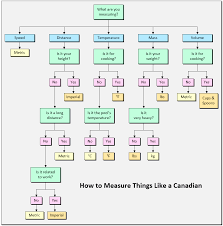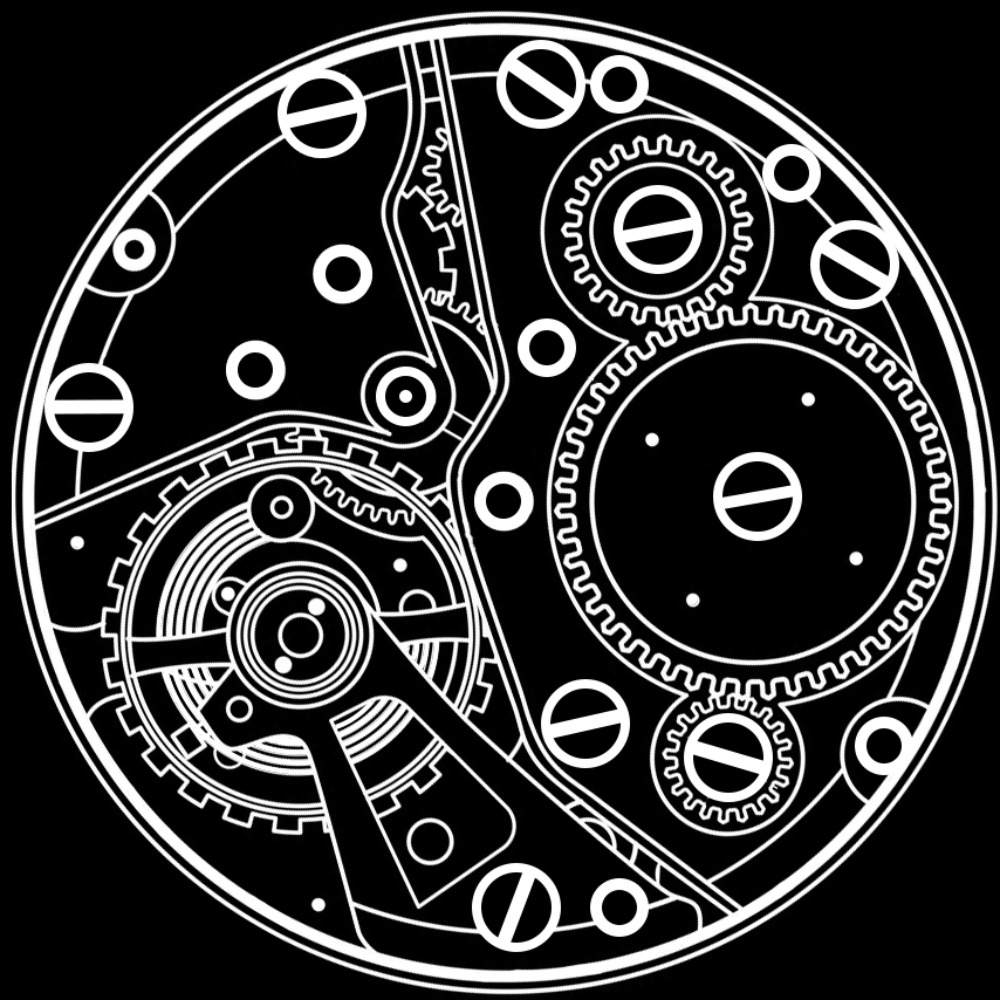While we are at it, let’s all (as in the entire planet) switch to 24hour UTC and the YYYY.MM.DD date format.
What about a format where we only have multiples of 10?
You mean base-10? My totally unrealistic pipe dream would be to have the world switch to base-12.
I mean something like 1 day = 10 hours = 1 000 minutes = 100 000 seconds (currently 86 400 seconds so a second would only get slightly faster).
https://en.m.wikipedia.org/wiki/Decimal_time
This term is often used specifically to refer to the
French Republican calendartime system used in France from 1794 to 1800, during the French Revolution, which divided the day into 10 decimal hours, each decimal hour into 100 decimal minutes and each decimal minute into 100 decimal secondsOh, nice! It’s funny how it’s the same as the one I just made up which further proves that it simply makes sense.
Yeah. I think if someone had a sensible method for how we could switch from one to the other with minimal impact, it might work.
What would very difficult for me would be the recalibration of my internal clock. Knowing a second is slightly shorter, and a minute is longer, and an hour is much longer, would be hell for a while.
Unfortunately I think something that’s pretty hard coded into the society at this point is that a day should be able to divide by so we end up with the 8hr work, 8 hr rest, 8 hr sleep. I’d be interested in a 30hr day over a 10 hr day. But that one doesn’t make much sense either since it misses the mark on bringing tim fully into the 10 base metric system, but still has all the same troubles you’d encounter for getting people to switch.
ISO8601 gang
Represeeeeent!
Some ISO8601 formats are good, but some are unreadable (like 20240607T054831Z for date and time).
The ones without separators tend to be for server/client exchange though.
I agree but they’re hard to read at a glance when debugging and there’s lots of them :)
Having said that, a lot of client-server communications use Unix timestamps though, which are even harder to read at a glance.
At least it’s human readable and not protobuf 😬 * though the transport channel doesn’t really matter it could be formatted this way anyhow.
While we at that, lets switch to the international fixed calendar as well.
let’s* switch
lettuce* switch
That one feels kinda meh to me. It solves a handful of non-issues with our current calendar (I don’t care that the month starts on the same day, nor do I care that each day of the year is always the same day of the week). Each months having the same number of days is an improvement. It persists the problem that you still can’t use months or years as a real mathematical unit of measure and extends it to weeks, which is the biggest annoyance with calendars, although it reduces how often that becomes significant. Adding two days that have neither a day of the week nor month would mean significant changes to every computer system that needs to deal with dates, and is just hateful.
The 1st of a month to the 1st of the next will always be one month, but it depends on the month and year how many days that is. So a month as a duration will span either 28 or 29 days. A week is now sometimes 8 days, and a year might still have 365 or 366 days, depending on the year.
How do you even write the date for the days that don’t fit? Like, a form with a box for the date needs to be able to handle Y-M-D formatting but also Y-YearDay. Probably people would just say 06-29 and 12-29, or 07-00 and 01-00, although if year day is the last day of the year it kinda gets weird to say the last day of the year is the zeroth day of the first month of the next year.There’s just a lot of momentum behind a 12 month year with every day being part of a month and week. Like, more than 6000 years. You start to run into weird issues where people’s religion dictates that every seventh days is special which we’ve currently built into our calendar.
Without actually solving significant issues, it’s just change for changes sake.
Well, this is shitpost. And I wasn’t serious about this. I responded to someone that wants the whole world to switch to a global time, and since mankind existed we used some local time in our daily lives.
Also UTC is not perfect because of leap seconds. Which means you cannot calculate with a simple formula how many seconds are between two time stamps, you need a leap seconds table for that. And leap seconds are only announced under 6 months into the future. So everything farther away, you cannot say how much time is between two stamps.
So with UTC a minute can have more or less seconds that 60.
That’s good for file/record sorting, so let’s just use it for that
For day to day, DD.MM.YY is much more practical.
For day to day, DD.MM.YY is much more practical.
It’s not though… It’s ambiguous as to if the day or month is first. With the year first, there’s no ambiguity.
If you want to use d-m-y then at least use month names (eg. 7-June-2024).
It’s ambiguous as to if the day or month is first.
Not if everyone is using it, as they should.
Besides, so is is yours. 2024.06.07 could be the 7th of June or (if you’re an American and thus used to the months and days being in an illogical order) 6th of July.
As for writing out the month names, that’s no longer shorthand. That’s just taking more time and space than necessary.
Au contraire! With a three character month, period separation isn’t needed, and the date is shorter. (Admittedly there’s likely to be a language translation issue, depending on audience.)
Hard disagree.
Least specific -> most specific is generally better in spoken language as the first part spoken is the part the listener begins interpreting.
Like if I ask if you’re free on “the 15th of March” vs “March 15”, the first example is slightly jarring for your brain to interpret because at first it hears “15th” and starts processing all the 15ths it’s aware of, then “March” to finally clarify which month the 15th is referencing.
The only thing practical about DD.MM.YY is that it is easier for the speaker because they can drop the implied information, or continue to add it as they develop the sentence.
“Are you free on the 15th” [oh shit, that’s probably confusing, I meant a few months from now] “of July” [oh shit, I actually mean next summer not this one] “next year (or 2025)”.
So the format is really a question of who is more important in spoken language: the speaker or the listener? And I firmly believe the listener is more important, because the entire point of communication is to take the idea you’ve formulated into your head, and accurately describe that idea in a way that recreates that same idea in the listener’s head. Making it easier for the speaker to make a sentence is pointless if the sentence itself is confusing to the listener. That’s literally a failure to communicate.
You’re confusing your own familiarity and experience with a general human rule.
My mother tongue (Portuguese) has the same order when saying numbers as English (i.e. twenty seven) and indeed when I learned Dutch it was jarring that their number order is the reverse (i.e. seven and twenty) until I got used to it, by which point it stopped being jarring.
The brain doesn’t really care beyond “this is not how I’m used to parse numbers” and once you get used to do it that way, it works just as well.
As for dates, people using year first is jarring to me, because I grew up hearing day first then month, then year. There is only one advantage for year first, which is very specifically when in text form, sorting by text dates written in year-month-day by alphabetical order will correctly sort by date, which is nice if you’re a programmer (and the reason why when I need to have a date as part of a filename I’ll user year first). Meanwhile the advantage of day first is that often you don’t need to say the rest since if you don’t it’s implied as the present one (i.e. if I tell you now “let’s have that meeting on the 10th” June and 2024 are implied) so you can convey the same infomation with less words (however in written form meant to preserve the date for future reference you have to write the whole thing anyway)
Personally I recognize that it’s mainly familiarity that makes me favour one format over the other and logically I don’t think one way is overall better than the other one as the advantages of each are situational.
Meanwhile the advantage of day first is that often you don’t need to say the rest since if you don’t it’s implied as the present one (i.e. if I tell you now “let’s have that meeting on the 10th” June and 2024 are implied) so you can convey the same infomation with less words (however in written form meant to preserve the date for future reference you have to write the whole thing anyway)
That advantage is not exclusive to the date-first system. You can still leave out implied information with month-first as well.
Personally I recognize that it’s mainly familiarity that makes me favour one format over the other and logically I don’t think one way is overall better than the other one as the advantages of each are situational.
This is the biggest part of it. No one wants to change what they know. I’m from the US and moved to the UK, and interact with continental Europeans on a daily basis. I’ve seen and used both systems day to day. But when I approach this question, my answer isn’t “this one is better because that’s the one I like or I’m most comfortable with”, my answer is “if no one knew any system right now, and we all had to choose between one of the two options, which one is the more sensible option?”
dd-mm-yyyy has no benefit over yyyy-mm-dd, while yyyy-mm-dd does have benefits over dd-mm-yyyy. The choice is easy.
The minimal or non-existent benefits for most people in most situation of yyyy-mm-dd (no, the brain doesn’t need the highest dimensional scale value to come first: that’s just your own habit because of how numbers are spoken in the English language and possibly because the kind of situation where you use dates involves many things which are further than a year forwards or backwards in time, which for most people is unusual) - people sorting dates by alphabetical order in computer systems (which is where yyyy-mm-yy is the only one that works well) is just the product of either programmer laziness or people misusing text fields for dates - so don’t add to enough to justify the “jarring” for other people due to changing from the date format they’re used to, not the mention the costs in anything from having to change existing computer systems to having to redesign and print new paper forms with fill-in data fields with a different order.
In a similar logic, the benefits of dd-mm-yyyy are mainly the ease of shortenning it in spoken language (i.e. just the day, or just the day and month) and depend knowing the month and year of when a shortenned date was used (which doesn’t work well for anything but immediate transfer of information) so they too do not justify the “jarring” for other people due to changing from the date format they’re used to.
Frankly even in an imaginary situation were we would be starting from scratch and had to pick one, I don’t know which one would be better since they both have flawed advantages - year first only really being advantageous for allowing misusing of text data fields or programmer laziness in computer systems whilst day first only being advantageous in immediate transfer of date information where it given the possibility of using a shortenned date, something whilst is a tiny gain in terms of time or, if in a computers system or written form, storage space.
It’s really not a hill worth dying on and I only answered your point because you seemed to be confusing how comfortable it felt for you to use one or the other - a comfort which derives from familiarization - with there being some kind of general cognitive advantage for using any order (which, in my experience, there is not).
if I ask if you’re free on “the 15th of March” vs “March 15”, the first example is slightly jarring for your brain to interpret
Sounds like you’re just used to it being said the opposite (read: wrong) way. If you told someone in my country March 15th, it would be just as jarring to the listener.
at first it hears “15th” and starts processing all the 15ths it’s aware of, then “March” to finally clarify which month the 15th is referencing.
not in daily use. When you ask someone “what day is it today?”, they usually have a handle on what month it is and just need the day. For making plans, it’s only if you make them way in advance that you need the month first, which would be sorting and scheduling, not daily use.
When you ask someone “what day is it today?”, they usually have a handle on what month it is and just need the day.
You’re still allowed to exclude implied information, no matter which method of dating you want to go with. You can just say “the 15th”.
For making plans, it’s only if you make them way in advance that you need the month first, which would be sorting and scheduling, not daily use.
I can’t speak for you, but for me I am making plans, sorting, and scheduling every single day.
I can’t speak for you, but for me I am making plans, sorting, and scheduling every single day
Sounds exhausting tbh, I’m sorry…
YYYY.MM.DD and 24 hour for sure.
Everyone using UTC? Nah. Creates more problems than it solves (which are already solved, because you can just lookup what time it is elsewhere, and use calendars to automatically convert, etc.).
I for one do not want to do mental gymnastics /calculation just to know what solar time it is somewhere else. And if you just look up what solar time it is somewhere, we’ve already arrived back at what we’re already doing.
Much easier just looking up what time (solar) time it is in a timezone. No need to re-learn what time means when you arrive somewhere on holiday, no need for movies to spell out exactly where they are in the world whenever they speak about time just so you know what it means. (Seriously, imagine how dumb it would be watching international films and they say: “meet you at 14 o’clock”, and you have no idea what solar time that is, unless they literally tell you their timezone.)
Further, a lot more business than currently would have to start splitting their days not at 00:00 (I’m aware places like nightclubs do this already).
Getting rid of timezones makes no sense, and I do not understand why people on the internet keep suggesting it like it’s a good idea.
I’m pretty sure they don’t mean “give up on time zones” but “express your timezone in UTC”. For example, central Europe is UTC+1. Makes almost no difference in everyday life, only when you tell someone in another zone your time. The idea is to have one common reference point and do the calculation immediately when someone gives you their UTC zone. For example, if you use pacific time and tell me that, it means nothing to me, but if you say “UTC-8” I know exactly what time it is for you.
Oh right, yeah. We do this at my company which has operations world-wide. If we say timezone we say UTC±. Apologies for the misunderstanding
I am once again asking for yyyy-mm-dd
I’ll take metric gladly, but I can’t go that direction sir.
So dd-mm-yyyy?
yyyy-dd-mm 😀
INFIDELS
YMYDYMYD
YTMND
ISO8601 crew represent!
I get SO frustrated when I see a date like 4/3/2024 and have to spend time trying to figure out if it’s the 4th of March, or if some US company wrote the software I’m using and it has defaulted to silly format.
Try working for an American company while not living in America. I have spent years trying to convince my US colleagues to please use unambiguous date formats when sending email to a global audience. But no… they just can’t see why it would be necessary or even helpful to do that.
Metric speeds are stupid tho. Is 55kph fast or slow? Who tf knows. Meters, liters, celsius and grams are all chad units though.
This comment is bizarre to me. Is 35 mph fast or slow? Because it is the same as 55 kph ( km/h ).
55 km/h is an odd speed though it is true. Most towns in Canada for example, the default speed limit is 50 km/h. Highway speeds are more like 100 km/h.
Speeds in mph seem more intuitive to you?
Penis length number in centimeters > inches.
Just because the numbers are different doesn’t make it any longer. It’s still short…
Makes everything sound small I’ve got a 23 centimeter long penis
Is 55kph fast or slow?
Depends on what road signs say.
for a bullet? slow.
for a snail? fast.
I’m in favor of freedom, don’t force metric or customary on anyone. Let people measure things they way they want.
you must hate the towel of babel story in the bible.
Celsius is how hot water feels. Fahrenheit is how hot humans feel.
One is clearly more applicable for day-to-day life.
either are fine, just depends if you were raised using it or not
but one of them can be used easily simultaneously on day to day and science anywhere in the world
Well, mostly. You still need to use Kelvin so you don’t get negative numbers for sciencing, but using them simultaneously for both day-to-day and science is nowhere near as common. Most people just want to know what to wear, and using Celsius loses a lot of the fidelity that Fahrenheit gives. This is after I spent 2 years only looking up the weather in Celsius so that I could get a feel for each degree of difference, and ended up just getting frustrated at how the same degree temperature in Celsius could feel drastically different to me when it’s actually a 2-3 degree difference in Fahrenheit.
Also, FWIW, British people love to use Fahrenheit when it’s over 100 degrees because it ‘feels hotter’ to say that than ‘37’, but they also love using Celsius when it’s below freezing, as it ‘feels colder’ to say negative numbers instead of numbers in their teens or twenties. It’s more psychology than anything, but Fahrenheit still definitely has its practical uses, and I’m not ditching it anytime soon.
We can ditch feet/yards/miles though. Meters definitely make more sense in that regard.
Your point about Kelvin true, you still need to do some converting, but as I said, the day to day use ultimately depends if you were raised using either.
Using me as an example, I completely understand that 10~15C outside is freezing, 22~27 is okay, 30~36 is hot and 40+ is scalding.
You could make this same point about fahrenheit and both are true, I have no ideia what 100F feels like, or 10 or 40 or 160.
10-15 Celsius literally isn’t “freezing” though?
I wouldn’t get outside without a heavy coat, we don’t have temperatures below 0 where I live, if you think that by “freezing” I meant ice and snow, that would be incorrect
You could drive this one stretch https://www.atlasobscura.com/places/i19-americas-only-metric-interstate
I ended up on this last year as I was exploring the South West. I found it confusing even as a Canadian.
I then later was confusion when Google Maps told me to go 80 on Hwy 10 in Texas once I came up from Big Bend NP. I thought the GPS was confused. 80 kms on the highway in the US? It was then I realized I wasn’t in Oregon anymore with their 60 mph highways. Texas goes fast and even 80 mph isn’t enough for most people. Even the single lane highways with construction workers was 65 mph work zones in Texas.
It was the most amount of road kill I’ve ever seen in all my travels. I think at one stage a herd of goats must of tried to cross the highway based on the carnage I came across. I finally understood the reason for the huge bumpers on the front of trucks in Texas now.
As a mechanical design engineer in America having dual systems creates unnecessary complexity and frustration and cost for me all day every day. I full force embrace switching to metric
as a mechanic working in a hodgepodge US/EU factory line, I have to suffer through always carrying double the tools to service metric and SAE machines. and after so many years in the industry, I still slip up and say 3/16 when I mean 3/8 sometimes, because fractions are a shit system for wrenches.
oh, and some of our linear encoders readout decimal-feet, because fuck it, why not?
My condolences. I’m already annoyed with the times USC units are presented in Australia (our nominal pipe sizes are often talked about in inches, and sometimes valves and such have USC flow coefficients because the manufacturer is American).
So I cannot imagine the pain you must be subjected to.
There are three sizing standards used in the UK right now: metric for newer homes, imperial for older homes and farmer’s sizing for fuck you, that’s why.
We even like combining them in one thing. Tyres are measured using inches for one dimension and millimetres for the other two.
Metric yes please. Also for fucks sake use the 24 hour clock. Some of us learned it from the military but it’s just earth time and way easier than adding letters to a number
If America is going to go through the trouble to convert everything to metric, might as well switch to base 10/decimal time as well lol
the 24 hour clock
I switched to it in my later teens when I realised how many cases it would be better in.
Conversion during conversation might be an extra step, but I’ll be pushing for the next generation to have this by default.Also, much better when using for file names.
Also, YYYY-MM-DD
Conversion during conversation might be an extra step
Conversion is always extra step, but you don’t need it if you use same timezone as other participant.
Also, YYYY-MM-DD. There’s a reason why it is the ISO
Big-endian is big. Alternatively DD.MM.YYYY or DD.MM.YY for little-endian lovers.
Except no because the digits themselves are still big-endian. That’s nUxi.
It’s more along the lines of most signigicant bit/least significant bit, rather then byte order.
Right, and the most significant bit of the whole date is the first Y in YYYY, which we can’t put at the end unless we reverse the year itself. So we can either have pure big-endian, or PDP-endian. I know which one I’m picking.
Your literal statement is also just wrong. The solitary implication of endianness is byte ordering, because individual bits in a byte have no ordering in memory. Every single one has the exact same address; they have significance order, but that’s entirely orthogonal to memory. Hex readouts order nybbles on the same axis as memory so as not to require 256 visually distinct digits and because they only have two axes; that’s a visual artefact, and reflects nothing about the state of memory itself. ISO 8601 on the other hand is a visual representation, so digit and field ordering are in fact the same axis.
Every single one has the exact same address; they have significance order, but that’s entirely orthogonal to memory.
We are talking about transferring data, not storing it. For example SPI allows both for LSB-first and MSB-first. In date digit-number-date is like bit-byte-word.
Right, and in data transfer every byte can be placed in an absolute order relative to every other. And the digits within the respective fields are already big-endian (most significant digit first), so making the fields within the whole date little-endian is mixed-endian.
I have iterated this several times, so I worry there’s a fundamental miscommunication happening here.
The conversion is pretty much the only hurdle I ever hear about, but that’s easy enough. How many songs/films talk about “if I could rewind the last 12+12 hours”…it’s just a matter of making it fit in context people can understand when they know a day is 24 but are used to 12.
ISO and while we’re at it, the NATO phonetic alphabet for English speakers. “A as in apple B as in boy” means fuck all when you’re grasping for any word that starts with that letter, and if English isn’t your first language fuckin forget about it.
ISO and while we’re at it, the NATO phonetic alphabet for English speakers. “A as in apple B as in boy” means fuck all when you’re grasping for any word that starts with that letter, and if English isn’t your first language fuckin forget about it.
err… didn’t get what you’re trying to say
We standardized an alphabet among all countries for clear communication.
Here is an example of it going wrong.
I’m pretty sure that’s an example of why you should use the chosen ones instead of going “mancy/nancy” all over the place.
Also, didn’t they just make a standard for themselves and other just took it because it was probably easier than making one for their own language (oh right, NATO… but let’s be honest here, NATO is just a forum for America to flaunt its power while PR-ing peaceful, so it makes sense they use English, which is also easier to be a second language than most other ones).
Though I feel like China might have made their own.I knew this would be the video. 😂
The radio words were chosen to be distinct, such that for people who trained in them, it would be easier to distinguish letters being spoken over low quality radio.
Not very relevant in the era of 2G HD audio, and now VoLTE.
But when there’s a bad signal and you have to tell someone a callsign, it makes sense.
I like ISO, because in whatever cases I have interacted with it, it has made programming easier for me.
I like YYYY-MM-DD, because when files lose their metadata, if they are named using this, I can still sort by name and get results by date.
Why no base10 clock?
base12 has the advantage of being divisible by 2, 3, 4 and 6, while base10 is only divisible by 2 and 5.
You listed 2 twice(thrice if counting 6) for base12 and once for base10. Generally, when talking about bases better talk only about prime factors. Base12 has 2 and 3 as prime factors, while base10 has 2 and 5.
Ahh, another connoisseur of the Dozenal system! Everyone should add a little dek and el to their life!
So you’re arguing in favor of feet and inches?
The Dozenal system does have some advantages over base10. Feel free to poke around []https://dozenal.org/drupal/content/brief-introduction-dozenal-counting.html to learn a bit about Donzenal/Duodecimal counting and maths.
And to bring up a point, why did every nation that adopted the metric system require a law(s) to force people to use it? Complete with penalties if you don’t. If it was such a good and great idea, people would have naturally gravitated to it don’t you think?
Too easy. Plus we put in the 3/5 “compromise” so you can’t expect old white racists to learn proper math
You don’t need to add or multiply time very often. Division is super important tho, and base60 is better than base10 for that.
The French did try it back when they were in the process of changing to the metric system in the 1700s. Even THEY quickly determined that, much like the creation of the universe, it was a very bad idea. And it was very quietly dropped. French tried hard to scrub that moment of insanity from the history books. But well, the internet is truly forever in both directions I guess.
Metric time quickly got out of sync with the periods of light and dark. Mother Nature evidently doesn’t like humans dicking around with the time periods of her celestial movements. (Dozenal for the win!)
I love the 24 hour clock and living in London, UK I used it all the time. However, I remember one time I bought movie tickets at lunch for 17:30 and my brain thought it was for 7:30pm and I called my friend at the last moment saying: “you have to leave work early if we’re gonna make it!”
The 12 hour one is just so wildly dumb and inconsistent.
Why does it go from 11 AM to 12 PM to 1 PM?
Why would you demand metric everything and not metric time?
Cause then we’d be thinking we’re monkeys on a spherical rock in a vacuum instead of calibrating clocks to a radioactive element to make sure everyone tunes in to wheel of fortune on time while this oblate spheroid tumbles around
Also, it’s hard enough getting people to equate Km and C with known quantities, Americans can’t handle base unit shifts like that
Cause then we’d be thinking we’re monkeys on a spherical rock in a vacuum instead of calibrating clocks to a radioactive element to make sure everyone tunes in to wheel of fortune on time while this oblate spheroid tumbles around
Just a little sodium chloride
Look I get it, but also, I like fahrenheit and miles. They are more intuitive and closer to the ‘feeling’. 100 degrees is really hot. 100 mph is really fast. Maybe that’s my own bias from growing up with it though
Not only is 100C is also really hot, it’s the boiling point of water. Now that’s a 100 degrees that really stands for something.
I also find inches easier to work with unless I’m making something with my 3d printer. Fractions are just easier when you’re making something big with looser tolerances.
3 2/10 cm is easier than 3.2cm?
Doing things in 1/16ths of an inch is easier than metric for like woodworking and such IMO. Especially since most tools and materials come in inches here. Until you get into stuff that has tighter tolerances than 1/16th of an inch. Even then you could go to .010s or .001s of an inch but I’m more used to metric at that scale and that’s what the applications I use for 3d printing default to.
you don’t get it.
your tools and materials will come in metric when everything is metric.
doing things on 1/10 of an inch or 1/10 of a cm is the same as 0.1 inches or 0.1 cm.
1/16 = 0.0625
3/16 of an inch = 0.1875 inches
as in “1/16th” literally means “one divided by sixteen, so do extra math instead of just giving you the real number”
decimal doesn’t mean, nor have anything to do with metric.
you don’t get it. […] decimal doesn’t mean[…]
No, you’re not getting it. 1/16 isn’t a function of a decimal system. It’s base 2. Primarily because you don’t really deal with 1/10th of something, but half of a half sort of stuff.
1/2, 1/4, 1/8, 1/16…
2-1, 2-2, 2-3, 2-4…
And base-2 functions make sense in wood working in general because of it’s imprecise nature. It’s more useful to compare things in halves. A 2x2 piece of wood is not literally 2inches x 2inches. Even in Europe you guys follow weird numbers for finished wood dimensions. It doesn’t make sense to have such precision when nothing about it is precise.
So I have to throw out all my stuff and spend $1000s on new tools?
You don’t work in 1/10ths of an inch. It’s 1/16ths and that that’s where the math ends. You don’t need to convert it to decimal. Unless you’re doing machining which you do work in .0001ths due to the tighter tolerances and I’ve already agreed you might as well use metric for that.
you’re talking about two or three different, unrelated things.
- decimals vs fractions - you’re whining that 1/16 gives you more leeway, but too stupid to realise that 1/10 is less precise and is the same as 0.1
So either you’re happy with less precision - and decimals are good, or you want more precision - and decimals are still good.
Again - absolutely nothing to do with metric. You can convert 3 3/4 inches to 3.75 inches, 3 12/16ths or 3 7.5/10ths of an inch. They’re all the same thing and all imperial.
-
Tools. The topic is “using metric”. Once you have all metric tools, then it doesn’t matter. You’re trying to change the topic to buying new tools. Unrelated. Using a tool vs shopping like a princess for new toys. We’re talking about using tools.
-
but hey, while we’re on the topic of how dumb you are, let’s keep using what you say against you. You keep saying “it doesn’t have to be that accurate” well, okay then. then get a sharpie, write the approximate metric conversion on the side and get on with your life. A 5 minute job for someone who I presume can write numbers and count to ten?
-
I knew there were more. What you don’t get, what you keep missing, is that 1/16 is smaller than 1/10. that means your bitching about “tighter tolerances” applies more to dicking about with 1/16ths instead of 1/10s (which again, is decimals, nothing to do with metric)
If you can’t have a civil conversation without insults I’m not going to bother with you anymore. We’re talking about units of measurement, there’s no reason to be an asshole. Go fuck yourself.
1/16 of an inch is slightly smaller than a millimeter, you’d just end up using a millimeter or half again as your tolerance limit.
The big issue with imperial is all the fractions and strange conversions. On more then one occasion I’ve caught myself mixing up eighths and quarters, because my brain views them more as concepts then as numbers. Which is bigger, 11/16 or 3/4? Now, you’ll get the answer, sure, but you had to think about it and it goes against the natural intuition that larger numbers are bigger. Compare that with, which is bigger 0.6875 or 0.75 and it should be trivial to see which is easier to learn and use.
0.6875 is basically a meaningless concept to me when I try to picture it in my head and what if you need to add it to another dimension? It’s not easy to work 4 decimal places in your head. .75 only works because I automatically convert it to 3/4. Maybe it’s just something that comes with experience but I don’t have trouble with knowing what’s what. If your not sure you can always make the denominator equal and figure it that way. 3/4=12/16 for instance. Easy math to do in your head.
Sure, but your measuring system dictates what lengths you actually design things to be. You would never actually use 0.6875, but if some jerk designed something with that length, it will be easy to tell exactly how big it was. If you switched to metric, your smallest practical unit for woodworking would almost certainly be a millimeter.
The problem is everything is already built using the imperial measurements. Even if we switched all the new tools and materials over to metric we’d be stuck having to do a bunch of conversions when we’re integrating it into existing construction and we’d probably be dealing with that for the rest of our lives.
Yeah, I think it’s mostly just a familiarity thing. To me 0°C is cold af, 10°C is chilly, 20°C is nice and 30°C is hot. 100 km/h is fast but not really fast, though I’m probably biased in this regard from regularly driving on the Autobahn lol
exactly! whenever anyone says imperial units are “more intuitive” and better reflect “how it feels to humans”, i can only think: obviously, you grew up with it. that’s what you know.
no matter what measurement system you were raised on, it will feel intuitive to you and reflect how you as a human experience the world because you are used to measuring things in those units. having said that, i’d much rather we used metric if for nothing else than the ease of unit conversion.
When it comes to Fahrenheit, there is some merit to the idea - 0 to 30 is a small scale compared to 0 to 100, and unlike Imperial vs. Metric, Celcius has no base 10 system that makes any more sense than Fahrenheit does. . The opposite is true of kilometers and miles - kilometers is more refined since each unit is a shorter distance.
I’d prefer the Metric system, but Farenheit over Celcius for temperature measurement.
The fixed points (for 0 and 100) are much more logical though and can be used to accurately recreate the scale anywhere (well… it’ll be slightly off on higher altitude since boiling temperature changes but it’s still not far off).
0°C = water freezes (= it’s snowing)
100°C = water boils
meanwhile:
0°F = the coldest night Mr Fahrenheit experienced, thinking it couldn’t get any colder than that
100°F = Mr Fahrenheit’s own body temperature (he had a slight fever apparently)
How would you recreate that??
I am not water.
The temperature of water boiling is not a useful metric when it comes to the weather, as it’s extremely far outside of where humans can live. Science uses Celcius standard, and that seems to work fine, but I see no reason why we should use it for the weather.
I think we can agree that the freezing point is super important when it comes to the weather.
So where would you place the second mark (you have to define two spots) so it “makes sense for the weather” (I don’t see how it makes less sense for the weather than Fahrenheit, at least Celsius tells you if it’ll snow or not while Fahrenheit tells you nothing) while still making sure that it can easily be recreated?
The temperature of ice melting, on the other hand, is hugely important for weather. 0 point is placed at a very important spot as far as weather observations go.
Can’t say that of Fahrenheit.
We’ll just keep things as they are becuase it seems to be working fine.
Out of curiosity, what would you consider “too cold to go out”? Not really about the metric/celcius system, but 0c is light jacket weather for me.
Anything below or around zero degrees is undershirt, shirt, sweater and warm jacket weather for me. Though it rarely gets colder than single negative digits where I live. I’ll go with a light jacket from like 10-15 degrees upwards. I can’t handle the cold very well lol.
How would you even measure “They are more intuitive and closer to the ‘feeling’”. It’s not. You’re used to it. No one else in the world that grew up with C is going to find F more intuitive. Neither miles.
I feel the same way about Fahrenheit, but boy do people hate it when you say it out loud.
I’ve never had to use Kilometers much but I’m sure I wouldn’t have much trouble adapting to that as much.
That’s an artefact of the “now”.
In Australia we once had the imperial system and about a year after the big switch (14 Feb 1966) we became all metric like a mofo. Now 35c feels hot and 15c feels cold. Plus units of ten is so much easier than factions.
Ask the US military about the metric system, they’ve been using it since at least Vietnam, if not earlier.
As an army vet. No we don’t. Never once in the military did I use Celsius. For distances we used both. I have pictures from inside my vehicles where the speedo was in miles.
Fair enough, I’m an Australian vet, and the US guys we worked with used kilometres. I must have generalised.i withdraw my comment. 🙂
Yeah, and the benefits of switching does not out weigh the costs, like redoing all the signage and re-educating everyone and inevitable higher accident rate.
“intuitive” in the sense you described just means “familiar”. One feels like one. Ten feels like ten.
The magic of metric isn’t that each base unit is somehow more valuable in metric. It isn’t. One will always feel like one.
The magic is how easy it is to convert from the “small one”, the “medium one” and the “big one”.
Also, the convention of fractional inches is ridiculous.
It should be trivial to order 27/64, 3/8, and 7/16. Don’t make me do that math.
Hard disagree on the fractional units. Using rational numbers for those things derives from the frequency with which people need to double and halve things in the fields that use those conventions. Doubling 3/8 to get 6/8 or 3/4 is much easier than doubling .375 to get .75
That one’s nothing to do with the metric system vs imperial, aside from the fields that rely on the convention being largely the ones that created imperial in the first place. If they all switched to metric tomorrow they’d just say they need 3/5 meter spacing.
Does Germany use 3/5m spacing?
I looked it up and they use 2/5 meter spacing. Some other countries nearby use 3/5th though.
And it’s described locally as 2/5 and 3/5, rather than 40 or 60 cm?
If so, I’m shocked, but delighted to have learned something unexpected
From everything I’ve heard it’s a hodge podge, since the US, with the worst system, is the only one to use it consistently. Building plans would reference it by cm however.
What I was more referring to was from the perspective of the carpenter doing the work.
Fractions or decimals aren’t specific to us customary or metric. You see decimal inches perfectly often, or at least I do.
Fractions are a more convenient way of dealing with multiplying or dividing numbers without a lot of mental effort. 1/3 of .125 is gonna take a second to figure out. 1/3 of 1/8 is 1/24. 5 1/8 units is just ”5/8”, rather than the .625 in decimal.
It’s definitely less effective for numerical sorting in your head, but if I’m sorting screws or something, I’m probably gonna just look at them rather than compare the labels.
I’m a European living in the UK for 9 years. I still don’t know what a mile is. There’s nothing intuitive about Imperial units, you’re just used to them.

Be the change you want to see in the world. Use the metric system.
I’m a machinist, I don’t get to choose my units. We use standard and try to avoid metric dimensioning like the plague. The difference between .005 inches and .005 millimeters is literally an order of magnitude.
I did it all the time. But I’m not american.
Fine, fine, Ill use celsius.
“Fuck me it’s hot today”
“Yeah it’s at least four washing machines Celsius bro”
You can’t have it because of peer pressure from dead people. You gotta take them seriously, motherfuckers will haunt your ass and say shit like “thirty fathoms, gold dubloons and schooners, twenty nickel shillings”. We have the metric system in our country and the ghosts suck, they don’t even try to come up with sensical nonsense phrases for the sake of the bit, the lazy bastards.
Here is an alternative Piped link(s):
https://piped.video/JYqfVE-fykk
Piped is a privacy-respecting open-source alternative frontend to YouTube.
I’m open-source; check me out at GitHub.
We have it in Canada. Do you want to borrow ours?
The reality is that the US uses the metric system but everything is translated into freedom units for the general population. Another situation where you believe against all evidence that you have something that you really don’t have.
Are you under the impression that Canada doesn’t use imperial measurements for anything?
You were so sure you got me. Sorrry.

I didn’t realize Canadians measured things in 240p

Seriously I’m not sure if you messed something up or if Lemmy is messing up but I can’t read any of that text other than the title
Good news, everyone!
There is no text.



























